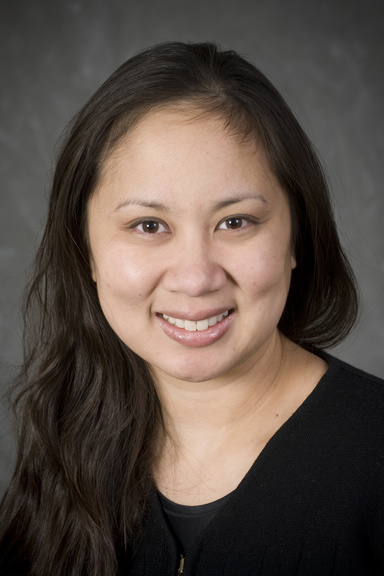Marizen Ramirez, University of Iowa associate professor of occupational and environmental health in the College of Public Health, has been approved for an estimated funding award of $1.7 million by the Patient-Centered Outcomes Research Institute (PCORI) to study how parents can help their children recover emotionally and socially from traumatic injuries.
The study is one of 82 proposals approved for PCORI funding in December 2013 to advance the field of patient-centered comparative effectiveness research and provide patients with information that will help them make better-informed decisions about their care.
Injuries from car crashes, burns, and falls are the leading cause of hospitalization for children. While children can recover physically, they often have problems dealing with the emotional and social impacts of their injuries.

“Kids may be unable to do things they did before the injury. Some will miss many school days. Others will be unable to engage in the sports or extra-curricular activities they enjoyed previously,” says Ramirez. “They may have difficulty sleeping, eating, or concentrating. Many of these reactions are normal and resolve with time. However, some children can develop serious conditions, like post-traumatic stress disorder and depression.”
Parents who notice these negative reactions often do not know what to do about them. The study will compare two parent-based approaches to help injured children recover emotionally and socially.
“One is a program we have developed called Listen Protect Connect for Injured Kids (LPC), which guides parents on how best to speak with their child after an injury, how to identify signs of distress, and how to obtain more care for their child if needed,” says Ramirez. “The second approach is an educational booklet given to families as they leave a hospital after a child's injury.”
For the study, the researchers will identify 300 children ages 10-17 admitted to the University of Iowa Children’s Hospital or Blank Children’s Hospital in Des Moines because of injury.
“The hospitals treat children who live in both urban and rural settings from all over Iowa. It is especially important to help families in rural communities, where medical and mental health resources are more scarce,” says Ramirez.
Parents and children will be assigned randomly to receive LPC or educational materials. Three months and six months after a child's hospitalization, the researchers will collect information from the parents and children about school attendance and performance, children's emotional health and quality of life, and overall family relationships, especially regarding support and communication.
“Doctors, nurses, social workers, parents, and injured children themselves have all helped us design this project and the LPC materials, and we will continue to work with them as we conduct the project,” says Ramirez. “Parents and children have told us how important it is to them to be able to cope with the emotional, as well as physical, aspects of an injury. Our goal is to give health care professionals more tools to help parents promote their children's full emotional recovery from injury.”
“The College of Public Health is developing a strong funding history with PCORI, as this is the college's third award from the institute,” says Corinne Peek-Asa, the college’s associate dean for research. “This trend demonstrates the importance of public health in health care delivery. “
PCORI is an independent, nonprofit organization authorized by Congress in 2010. Its mission is to fund research that will provide patients, their caregivers, and clinicians with the evidence-based information needed to make better-informed health care decisions. PCORI is committed to continuously seeking input from a broad range of stakeholders to guide its work.
Ramirez’s study and the other projects approved for funding by PCORI’s Board of Governors were selected through a highly competitive review process in which patients, caregivers, and other stakeholders joined scientists to evaluate the proposals. Applications were assessed for scientific merit, how well they will engage patients and other stakeholders, and their methodological rigor among other criteria. All awards are approved pending completion of a business and programmatic review by PCORI staff and issuance of a formal award contract.